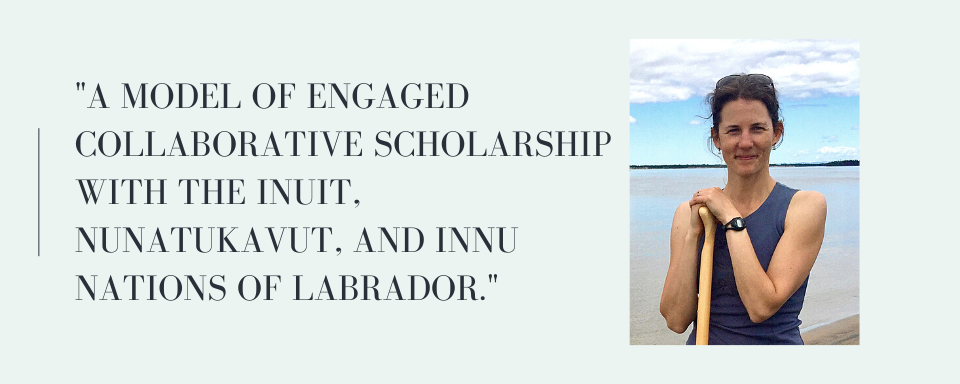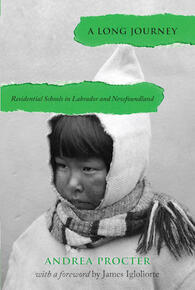
Andrea Procter wins the 2021 Clio Prize (Atlantic Region)
Andrea Procter (A Long Journey: Residential Schools in Labrador and Newfoundland) was awarded the 2021 Clio Prize (Atlantic Region), presented each year by the Canadian Historical Association to the author of the best book in regional history, as well as to individuals or historical societies who have made significant contributions to local and regional history.
This announcement adds another accolade for A Long Journey, which was recently awarded the 2021 Atlantic Book Award for Scholarly Writing, the 2021 Peter Cashin Prize, and was shortlisted for the 2021 BMO Winterset Award.
The jury had this to say about A Long Journey:
"Andrea Procter’s remarkable book, A Long Journey: Residential Schools in Labrador and Newfoundland, and part of the province’s Healing and Commemoration project, is a model of engaged collaborative scholarship with the Inuit, NunatuKavut, and Innu nations of Labrador. Building on a longstanding cooperative relationship with Labradorians, Procter incorporates hundreds of hours of oral history, much of it collected by the project, and some from published accounts. She skillfully combined them with extensive archival research, particularly in the records of The International Grenfell Association, which administered three residential schools in St. Anthony, Cartwright, and North West River for the NunatuKavut, and in the records of the Moravian Church of Labrador, which administered residential schools in Makkovik and Nain for the Inuit. Her efforts yielded a book that captures diverse points of view and individual experiences of former students. Each residential school had its own history, particularly among the Moravians, who first built schools in northern Labrador in the eighteenth century.
Proctor’s commitment to listening to former students makes this book come alive with their individual voices as they tell of cruelty and kindness, work and fellowship. Dozens of photographs, many from Them Days Archive in Happy Valley-Goose Bay, convey the outsized role these educational institutions in Labrador. Procter’s efforts of inclusivity provide a respectful representation of her informants as children at the schools and as adults making sense of life defining experiences. The book’s extensive archival research in Labrador, Newfoundland, Canada and further afield draws out the differences between the Moravians and the Grenfell Association in their approach to education. The Innu, many who were Catholics or familiar with Catholicism, chose to send their children to the Mount Cashel Orphanage in St. John’s, or to the Grenfell-run school at North West Arm. Sensitive to Indigenous traditions of child raising, this book will give readers an appreciation of the challenges and resilience of these Inuit, Innu, and NunatuKavut as they were subjected to a more punitive philosophy of education. While specifically about residential schools in Labrador and Newfoundland, this book is also evocative depiction of the Indigenous peoples of the province, particularly in their homelands in Labrador, and deserves a wider readership for the stories it tells and the nuances it expresses. It can also serve as an example for others who are committed to respectful collaborations that enable Indigenous peoples, in this case with diverse cultural perspectives, to convey their understandings of their own lives in a way that models rigorous collaborative scholarship."



Comments